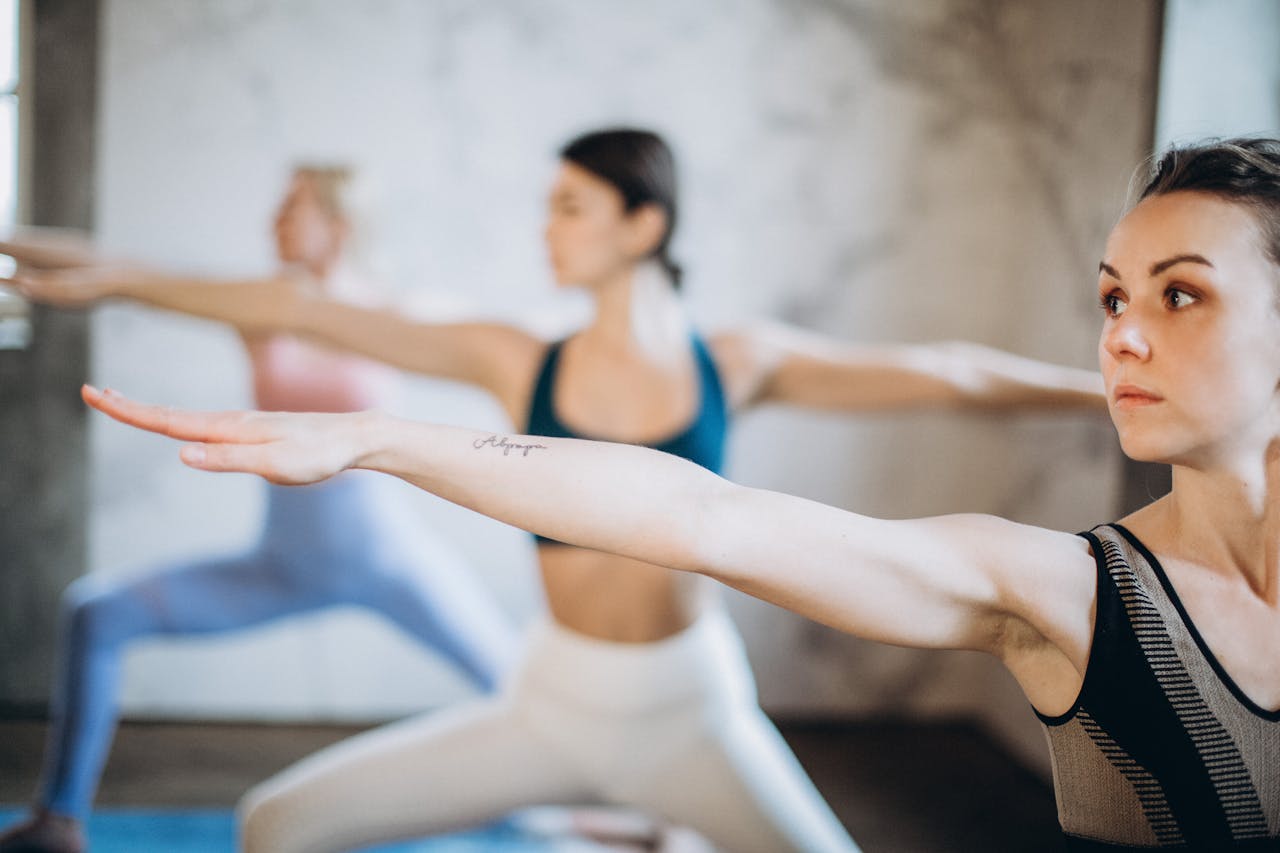
Table of Contents
The benefits of yoga are widely known and practiced by people of all shapes, sizes, and levels of flexibility. But with so many different types and styles of yoga, it can be difficult to know where to begin.
No matter what type of yoga you choose, be sure to listen to your body and only do poses that feel comfortable. With regular practice, you'll soon be reaping the many benefits of this ancient practice.
Resting Poses
Constructive Rest Pose
Constructive Rest Pose could be used as a corpse pose alternative. Knees are bent up with feet flat on the floor. Widen the feet and allow your knees to move inwards so your legs can relax. This can be used to help relax the psoas muscle.
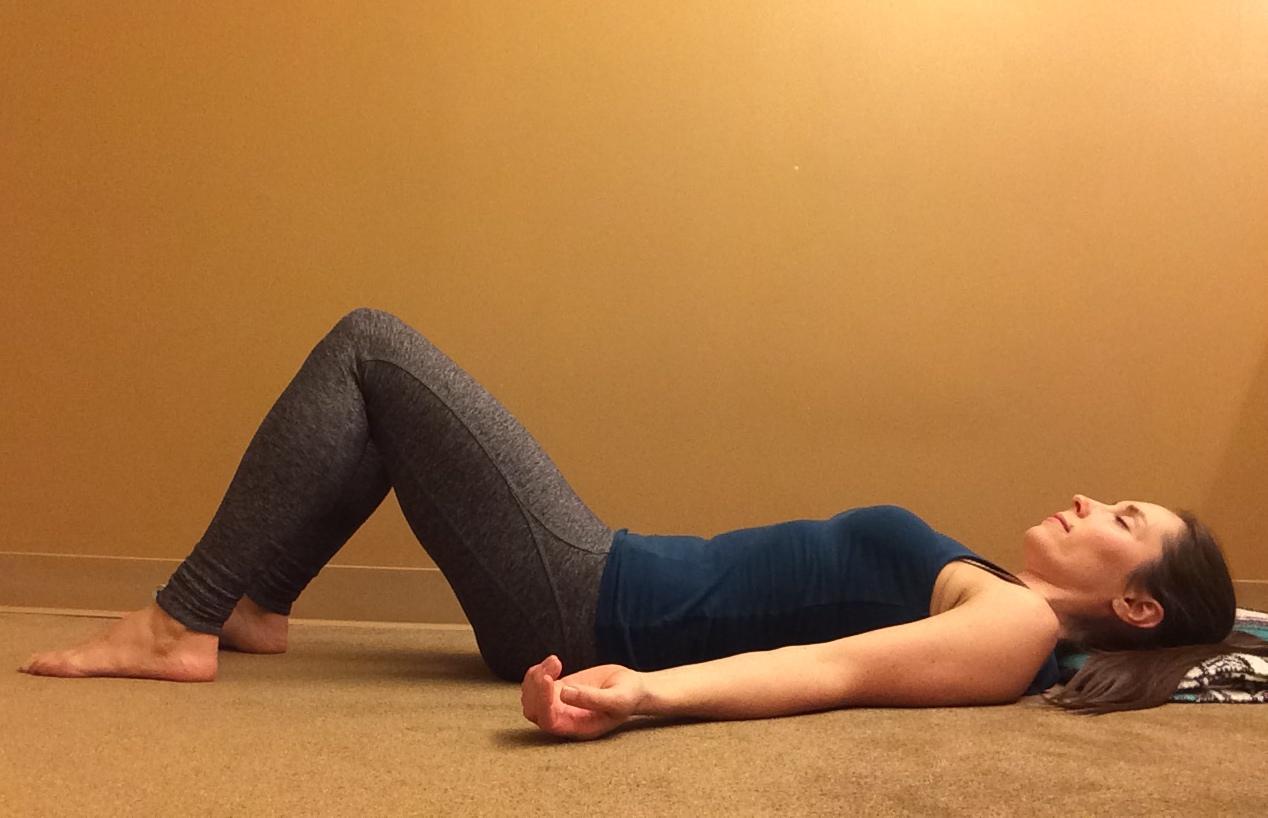
Supported Constructive Rest Poses
For the supported constructive rest pose, you’ll need a yoga block and a yoga strap. Place the block between your thighs and then tie the strap around your legs, just tight enough to keep the block in place. From there, lie on your back with your knees bent and feet flat on the floor.
If you haven’t got a yoga block, you could try this pose with just a strap, using the strap to prevent your knees from falling out to the sides. Adjust your foot width so that you can maintain this leg position with ease.
Savasana
Savasana / Corpse Pose is the final supine pose (lying on the back, face up) for resting after yoga practice. It is also the core position for Yoga Nidra. Lie on your back with legs apart and arms by your sides with palms turned up. Allow your body to sink down into the floor.
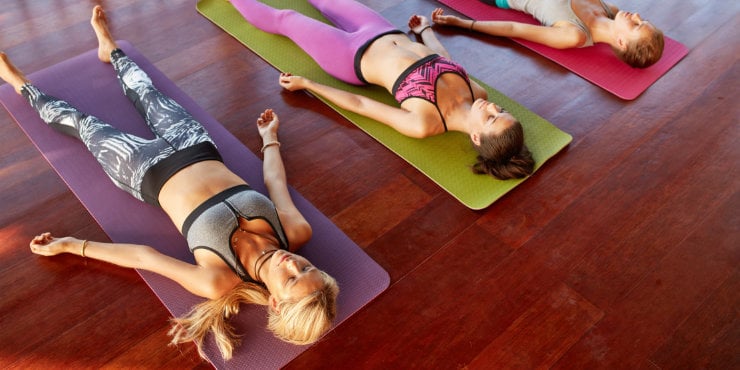
Yoga Poses Using a Chair
Seated Mountain Pose
For seated mountain pose, sit upright towards the front of your chair with feet even and flat on the ground. With your hands on your thighs, draw your head back and up so that the back of your neck feels open and long. Lift or lower your sacrum to adjust the tilt of your pelvis so that your lumbar spine feels comfortably long also. Try drawing the fronts and backs of your ribs upwards a slight amount, enough to allow you to feel tension in your mid section without excessive strain in your ribcage.
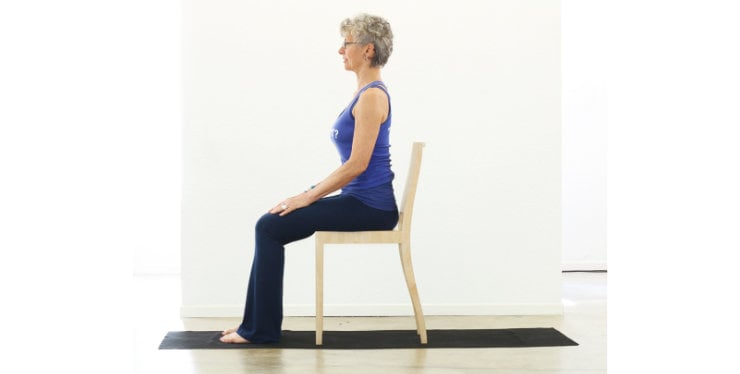
Standing Poses
Malasana
Malasana / Garland Pose (Yogi Squat) is perfect for stretching the groin, back, and ankles. This squatting pose also opens the hips while even toning the abs.
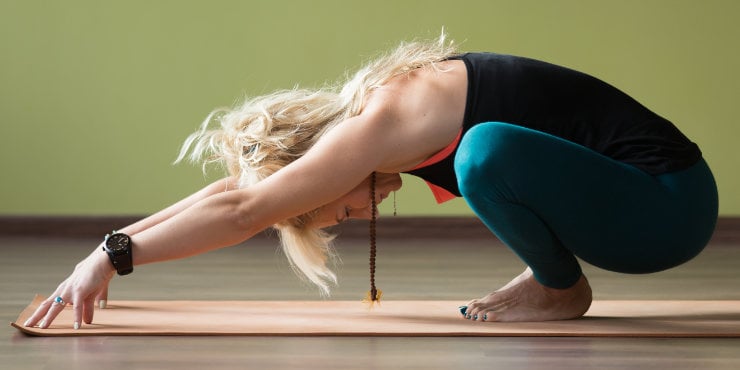
Mountain Pose
Tadasana / Mountain Pose is the basis for most standing asanas. While it may appear that it is “just standing,” it actually involves attention to many postural and alignment-related details.
Upward Hand Stretch
Urdhva Hastasana / Upward Hand Stretch is an energetic pose that is performed by standing and raising the hands above the head. This pose can improve digestion and will also stretch out the shoulders and belly.
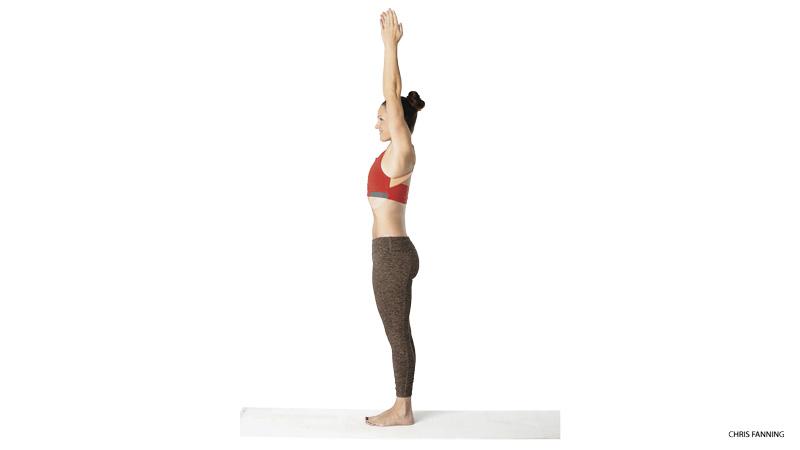
Utkatasana
Utkatasana / Fierce (Powerful) Pose can be a challenging standing pose, but it’s excellent for strengthening the hip flexors and stimulating the heart and abdominal organs. It also tones the legs and stretches the shoulders and chest.
Uttanasana
Uttanasana / Standing Forward Fold is particularly helpful at relieving stress and calming the nervous system. The deep bend at the waist provides an excellent stretch for the hamstrings and calves and also clears the mind.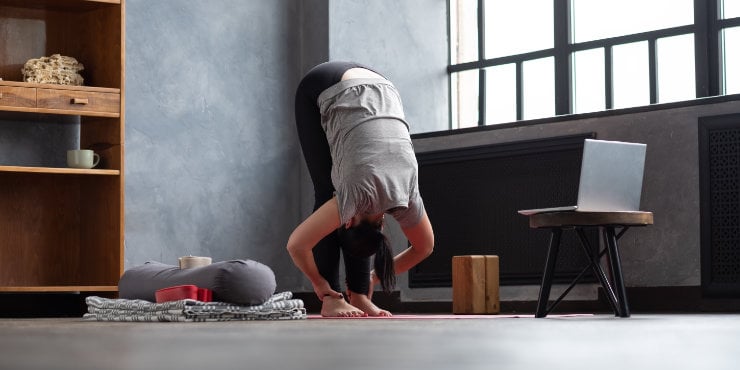
Ardha Attanasana
Ardha Attanasana / Half Forward Fold is an intense half stretch standing pose that is beneficial for stretching the front of the torso and strengthening the back.
Parsvottanasana
Parsvottanasana / Pyramid Pose is an intense side stretch that is wonderful for improving balance and alleviating pain and discomfort in the lower back.
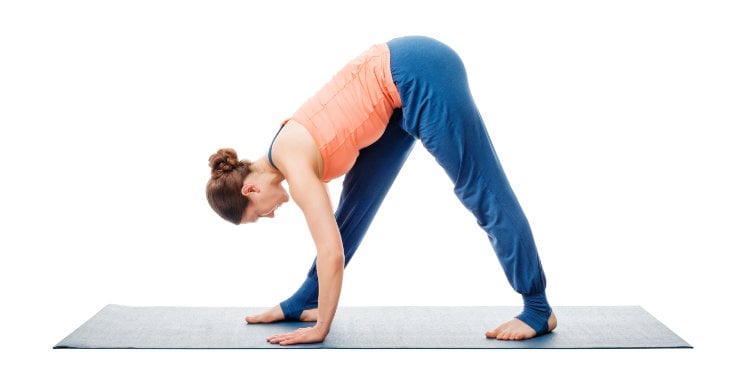
Parivrtta Trikonasana
Parivrtta Trikonasana / Rotated Triangle is a deep twisting position that stretches the hamstrings, opens the heart, and improves balance. While it can be a challenging pose, it’s important not to force the rotation, which could lead to injury.
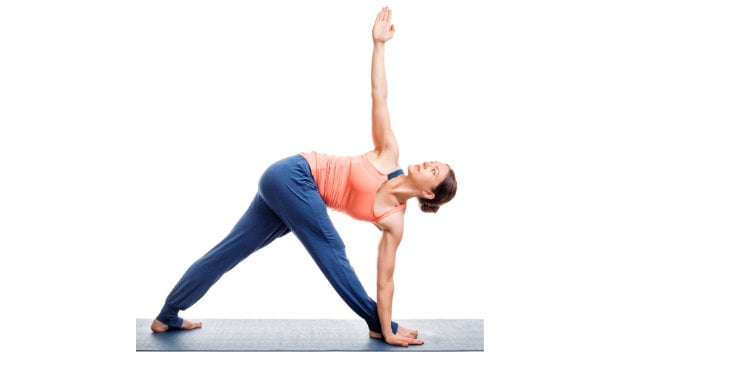
Virabhadrasana I
Virabhadrasana I / Warrior 1 Pose is a foundational pose that is wonderful at stretching out the upper body and belly, especially. One of the key challenges of this pose is keeping the back heal on the ground throughout.
Virabhadrasana II
Virabhadrasana II / Warrior 2 is a standing position, which provides a good stretch for the ankles and legs. It emphasizes concentration, strength, and stability.
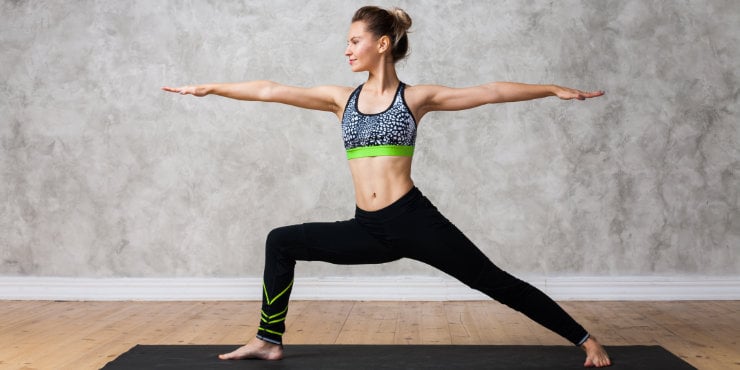
Utthita Parsvakonasana
Utthita Parsvakonasana / Extended Side Angle is a side-lengthening standing pose that gives a deep stretch to the hamstrings and groin area. Continual practice increases stamina and improves focus.
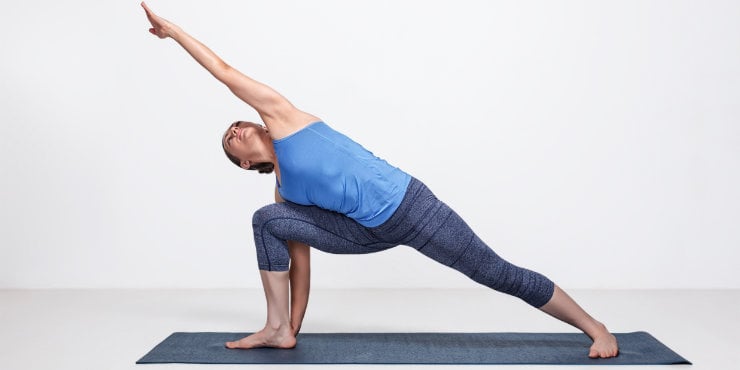
Utthita Trikonasana
Utthita Trikonasana / Extended Triangle is a common standing pose that strengthens the inner thighs, calves, and hamstrings while lengthening the back and providing a boost of energy to the entire body.
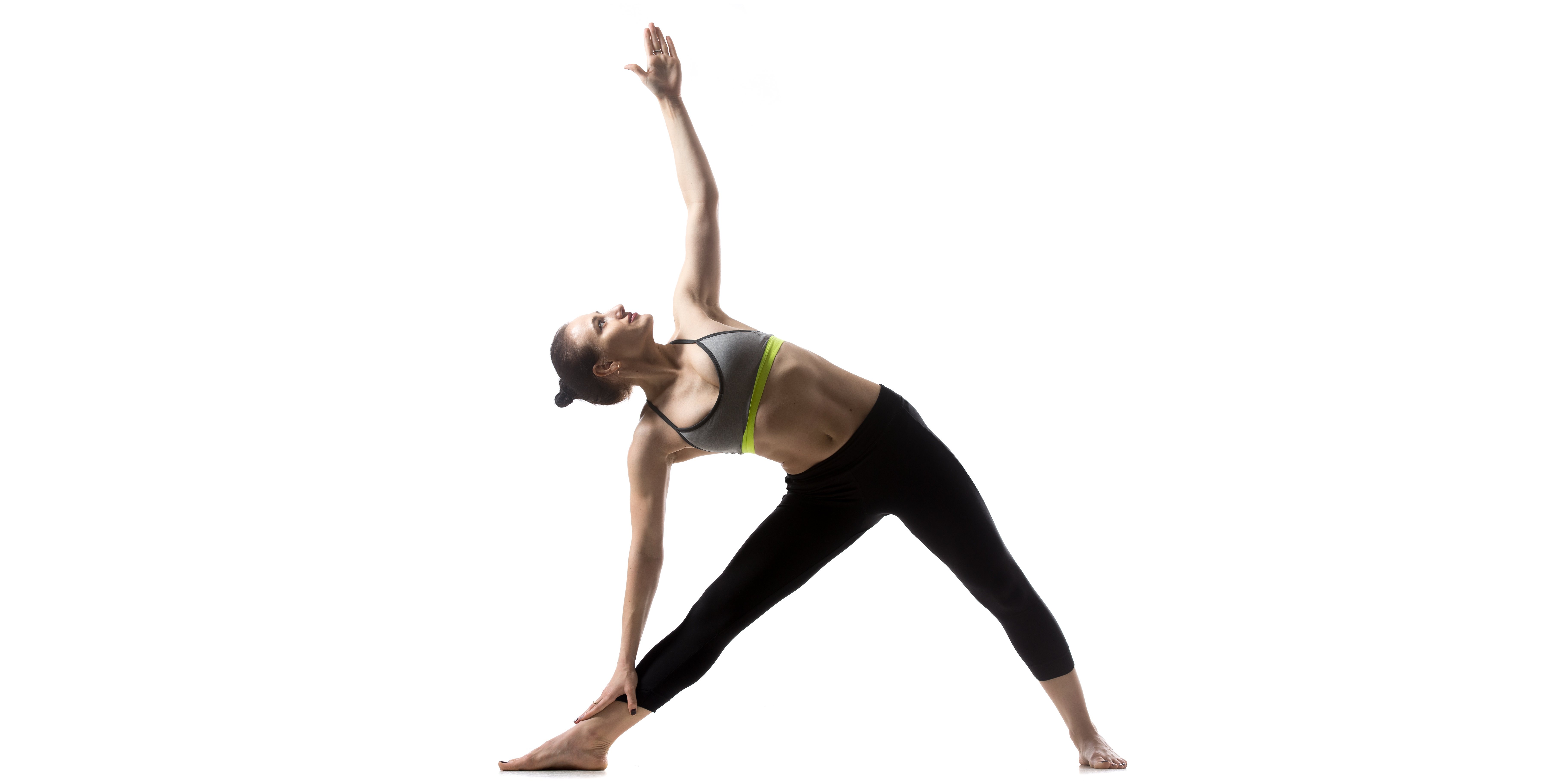
Neutral Poses - Arm Strengthening Poses
Downward Facing Dog
Adho Mukha Svanasana / Downward Facing Dog is a popular stretching pose that is wonderful for rejuvenating and energizing the entire body and mind while strengthening the legs and arms. It particularly involves a deep stretch of the hamstrings, calves, and shoulders.
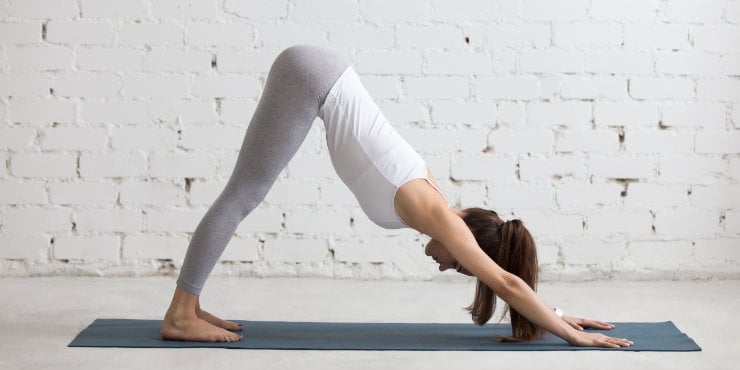
Chaturanga Dandasana
Chaturanga Dandasana / Four-Limbed Staff Pose is a challenging but common plank pose found within the Sun Salutation sequence. It helps to tone the abs and strengthen the arms.
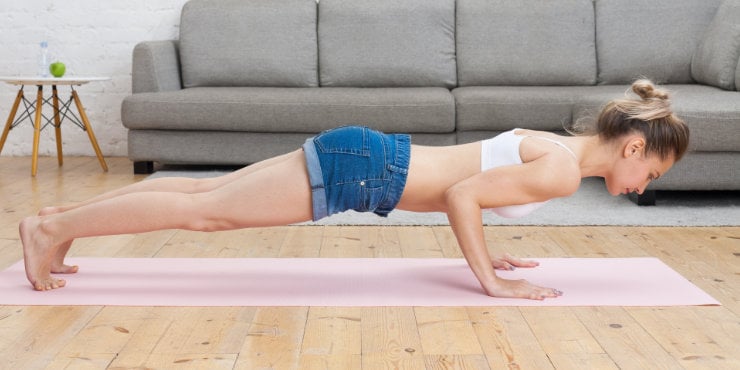
Urdhva Mukha Svanasana
Urdhva Mukha Svanasana / Upward Dog Pose is performed after pushing up from a prone position. It gives a deep stretch to the chest and abs while strengthening the upper arms and forearms and stimulating the abdominal organs.
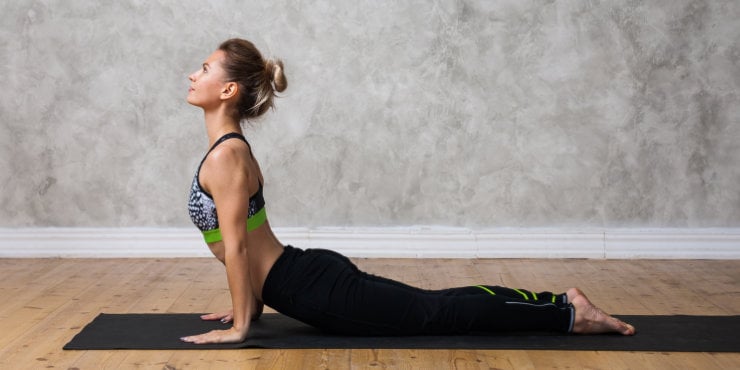
Vasisthasana I
Vasisthasana I / Side Plank is another rather challenging pose, which involves balancing in a side plank with legs stacked and one arm supporting your upper body weight. Benefits include strengthened arms, legs, wrists, and abs and improved balance.
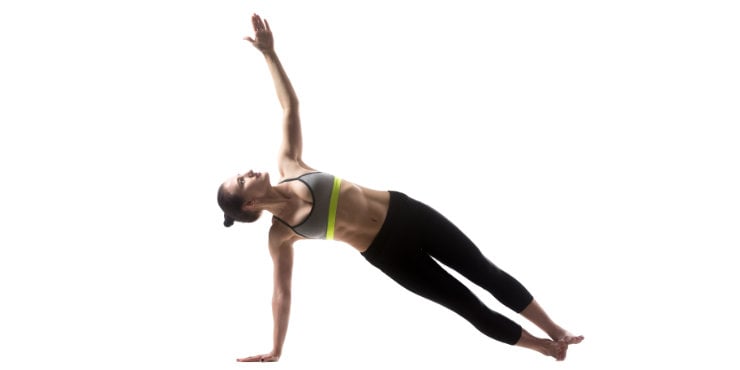
Yoga Balance Poses
Virabhadrasana III
Virabhadrasana III / Warrior 3 Pose is a pose that focuses heavily on honing your balance and maintaining stillness while steadying yourself on just one leg. It helps strengthen the legs and ankles, tone the abdomen, and improve overall balance and posture.
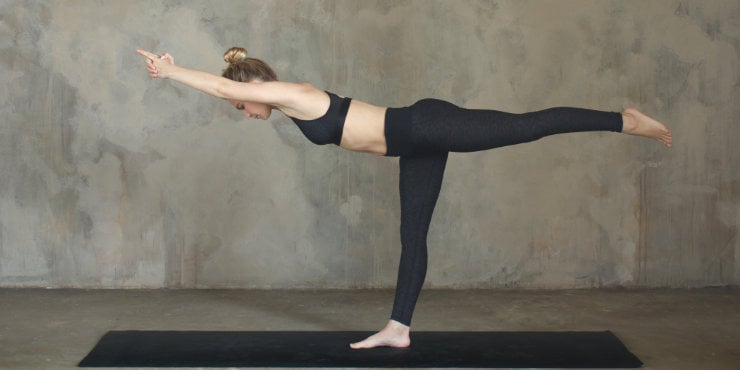
Ardha Chandrasana
Ardha Chandrasana / Half Moon is a pose that involves half your limbs having contact with the ground. One hand and one foot provide support while the other limbs are extended, giving an excellent stretch to the shoulders, chest, groin, and hamstrings.
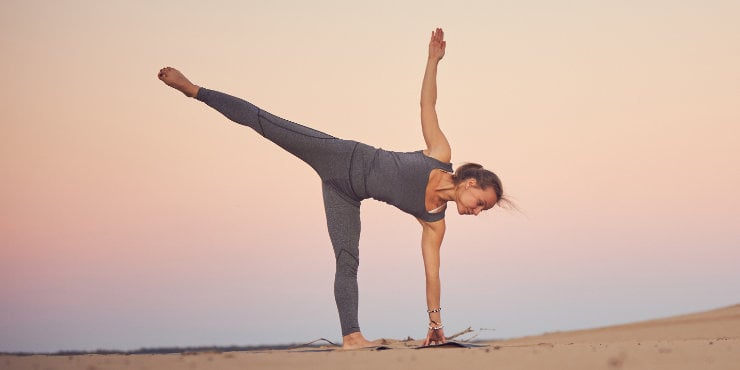
Garudasana
Garudasana / Eagle Pose / Goddess Pose is a pose that requires focused concentration and a reserve of endurance. You must balance on just one slightly bent leg while carefully wrapping the arms and holding a balanced position.
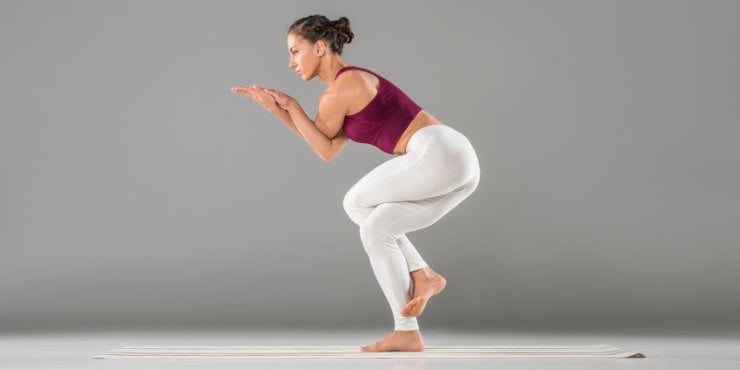
Navasana
Navasana / Boat Pose can be a challenging pose that strengthens the deep hip flexors and abs. It requires balancing on your tailbone and sitting bones while extending your legs and arms straight out.
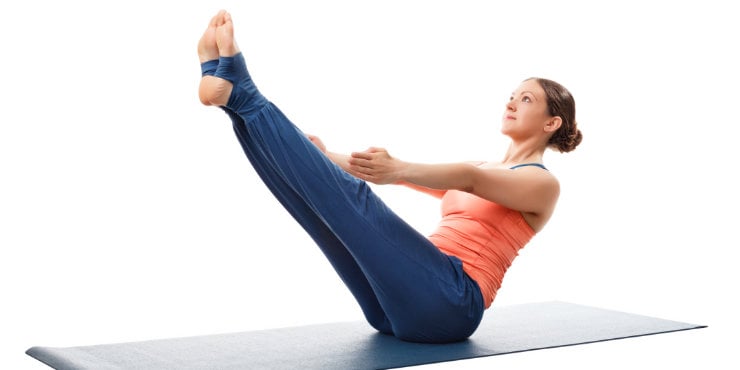
Bakasana
Bakasana / Crow Pose is a challenging pose that involves balancing on the hands in a squat-like position. The pose strengthens the forearms and wrists in particular while giving a good stretch to your upper back.
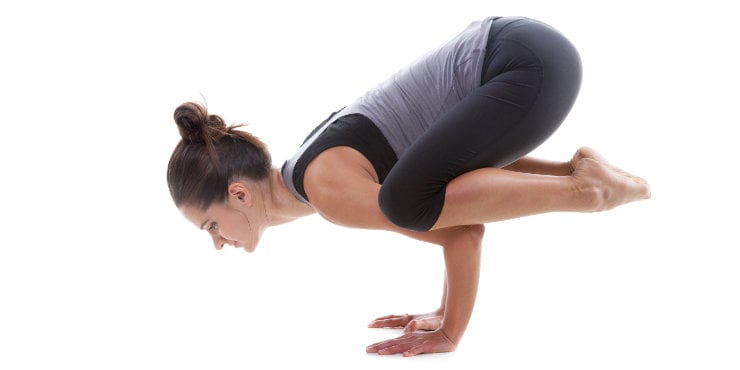
Advanced Balancing Poses
The following yoga poses are also balancing yoga poses but they involve balancing while upside down. Headstand and shoulder stand could be considered especially advanced because of the potential strain that they can put on the neck. This is more relevant in modern times because of the prevalence of smartphone and computer use which can lead to compromised neck posture and neck control.
Pincha Mayurasana
Pincha Mayurasana / Peacock (Feather) Pose is similar to the Headstand Pose; however, the difference is that only the elbows and forearms are planted, and the head does not touch the ground. This pose improves balance and strengthens the shoulders, arms, and abs.
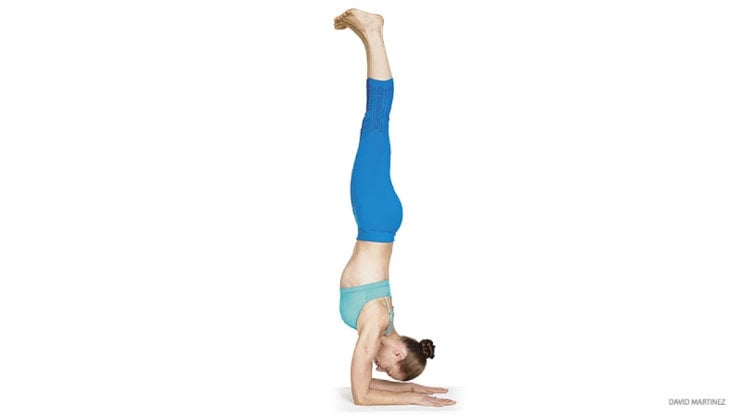
Adho Mukha Vrksasana
Adho Mukha Vrksasana / Handstand is essentially Mountain Pose flipped upside down. This advanced pose should only be attempted with a spotter at first, but once mastered, it provides strength to the arms and shoulders, improves balance, and relieves stress.
Sirsasana
Sirsasana / Headstand is similar to the Handstand Pose, but the top of the head is used as well, in order to create a tripod of support along with bent arms. It is excellent at strengthening the back, shoulders, and arms.
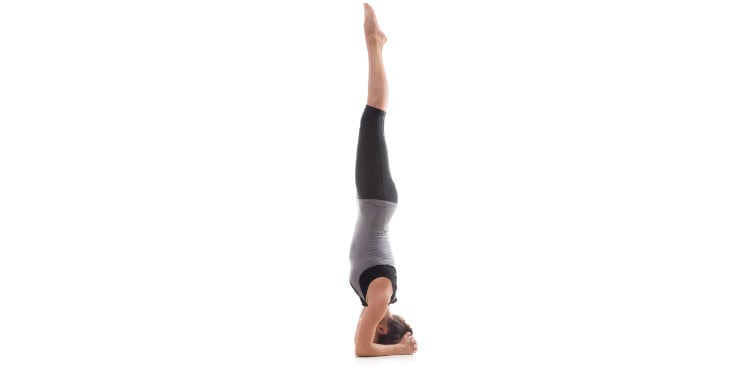
Sarvangasana
Sarvangasana / Shoulder Stand is an inverted pose that is often used at the end of a yoga session to encourage circulation and strengthen the spine and core.
The balance component here involves centering your weight over your shoulders.
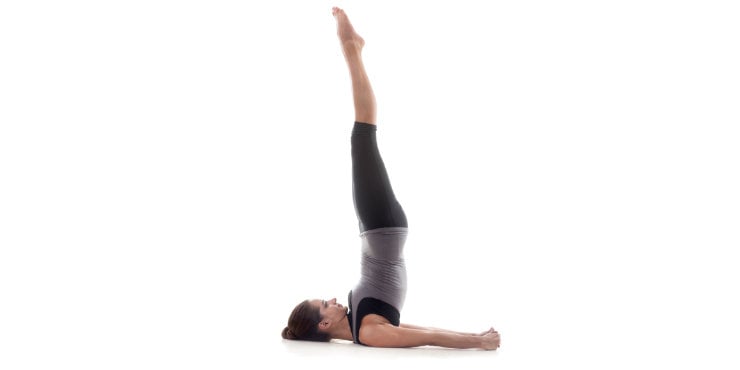
Poses that Include a Forward Bend
Dandasana / Staff Pose is simple in appearance, but involves several key details. Practitioners sit on the floor with legs outstretched and together while extending the torso slightly forward and sitting up straight.
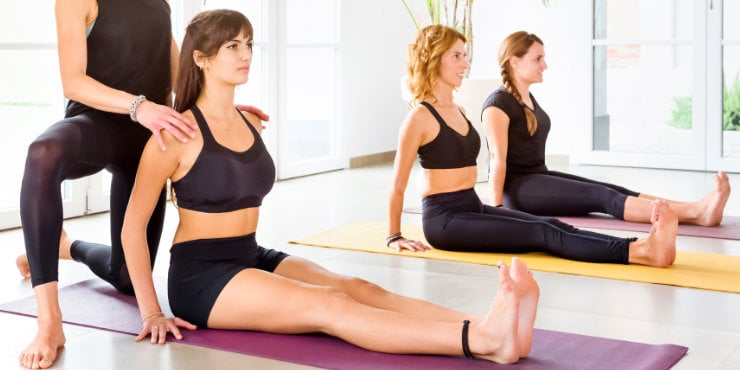
Flexion Poses (Hips and Spine)
Balasana / Child's Pose is a resting pose that is performed in a kneeling position with forehead on the floor. It is exceptionally soothing and calming and provides a great stretch for the entire back.
Upavistha Konasana / Seated Angle Forward Fold is ideal for opening the back and providing a stimulating effect to the nervous system. It is also helpful at relieving pain from sciatica and lengthening the hamstrings.
Flexion Poses (Spine)
Extension Poses
Salabhasana / Locust Pose is a magnificent pose to prepare the body for deeper stretches such as those involving backbends. It can also improve posture, strengthen the spine, and help relieve pent-up anxiety.
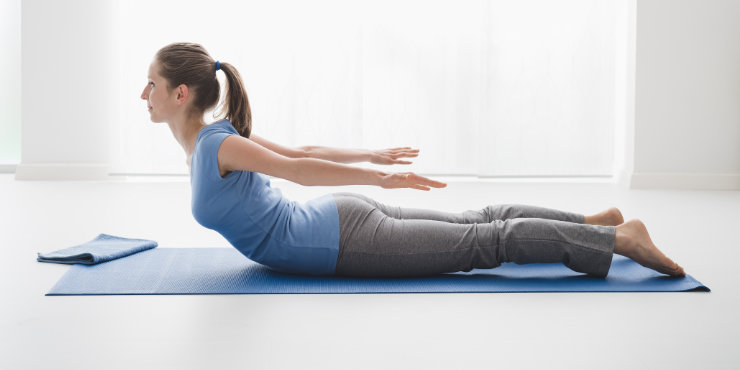
Variation:
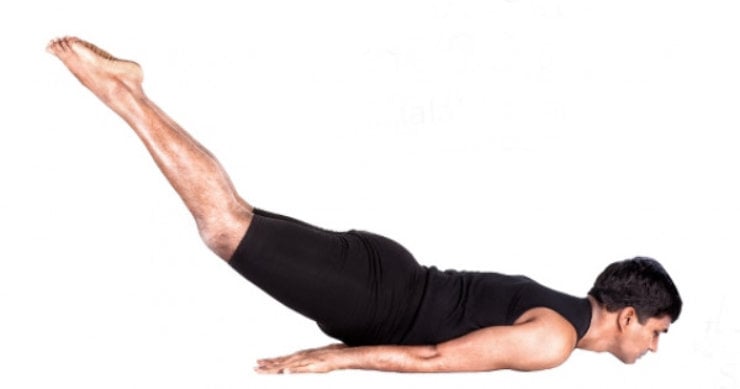
Bhujangasana / Serpent (Snake) Pose is a perfect pose for opening the chest and heart. It also increases flexibility in the spine, tones the buttocks, and helps reduce pain from sciatica.
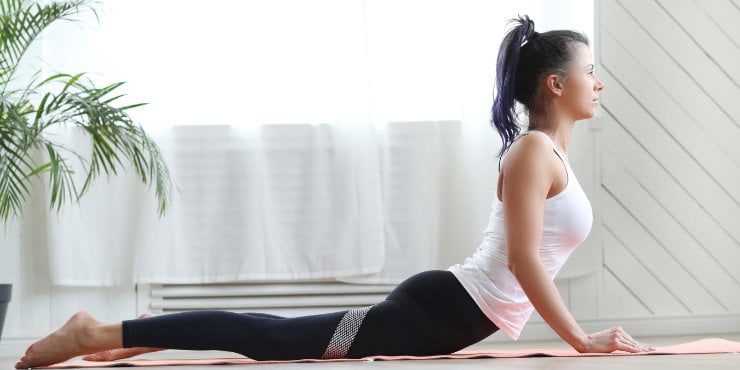
Setu Bandha Sarvangasana / Bridge Pose is performed by pushing up from a supine position with knees bent and feet flat on the floor. The pose gives a great stretch to the abdominal muscles and thighs while helping to reduce anxiety and relax the mind.
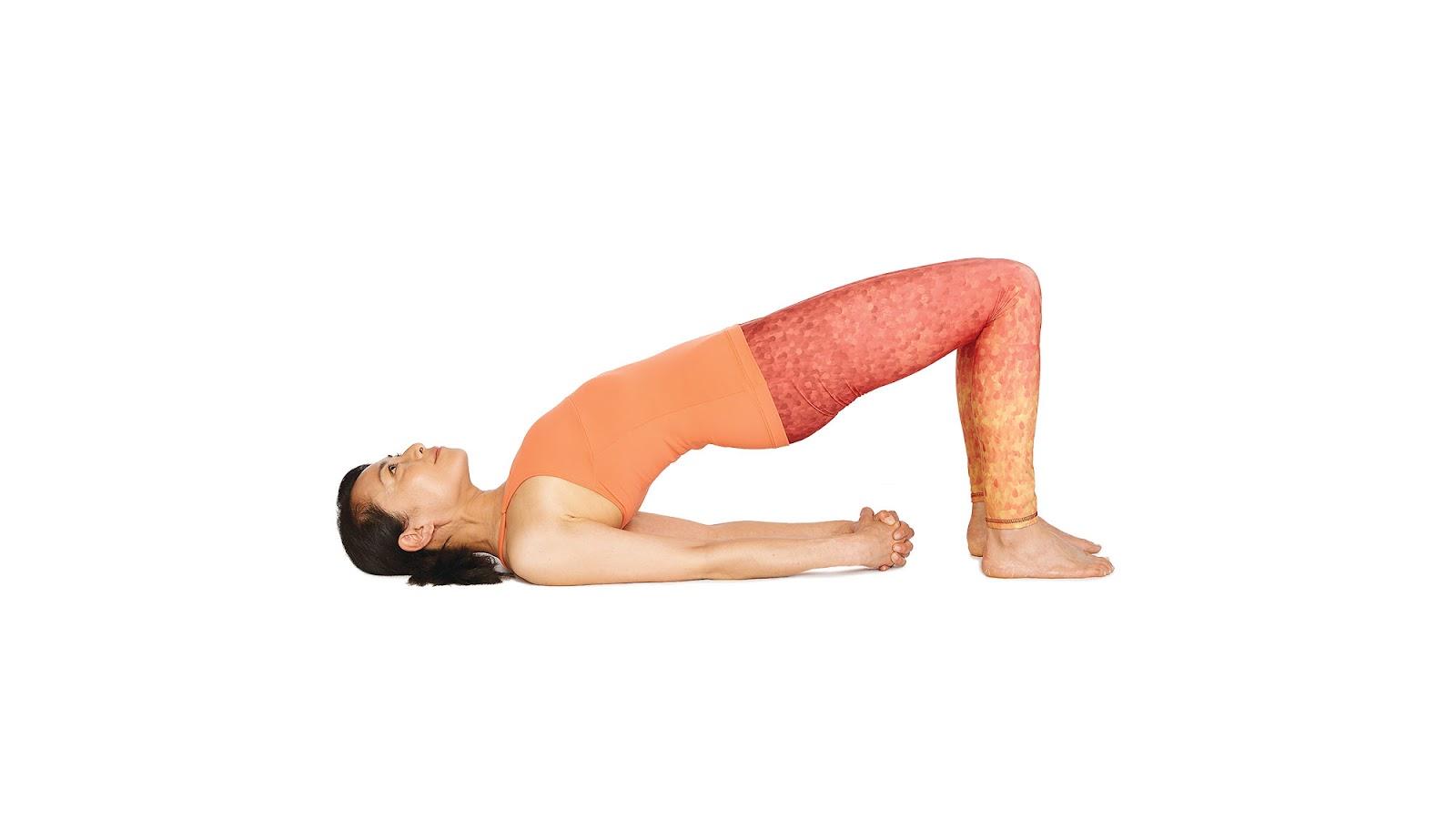
Supported Bridge (with block):
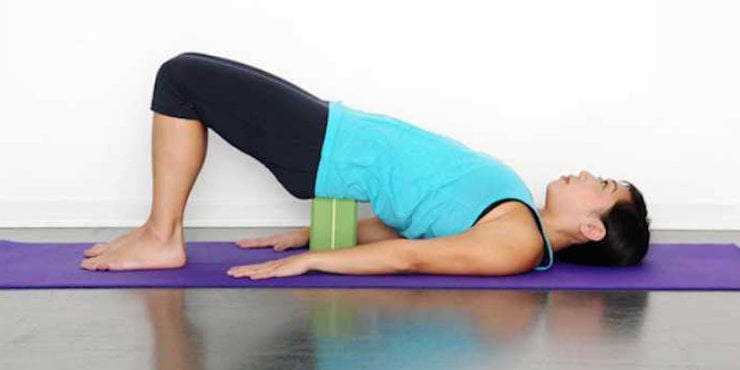
Urdhva Danurasana / Wheel (Bow) Pose is an advanced backbend pose that can provide a jolt of energy and improve flexibility in the spine and thighs.
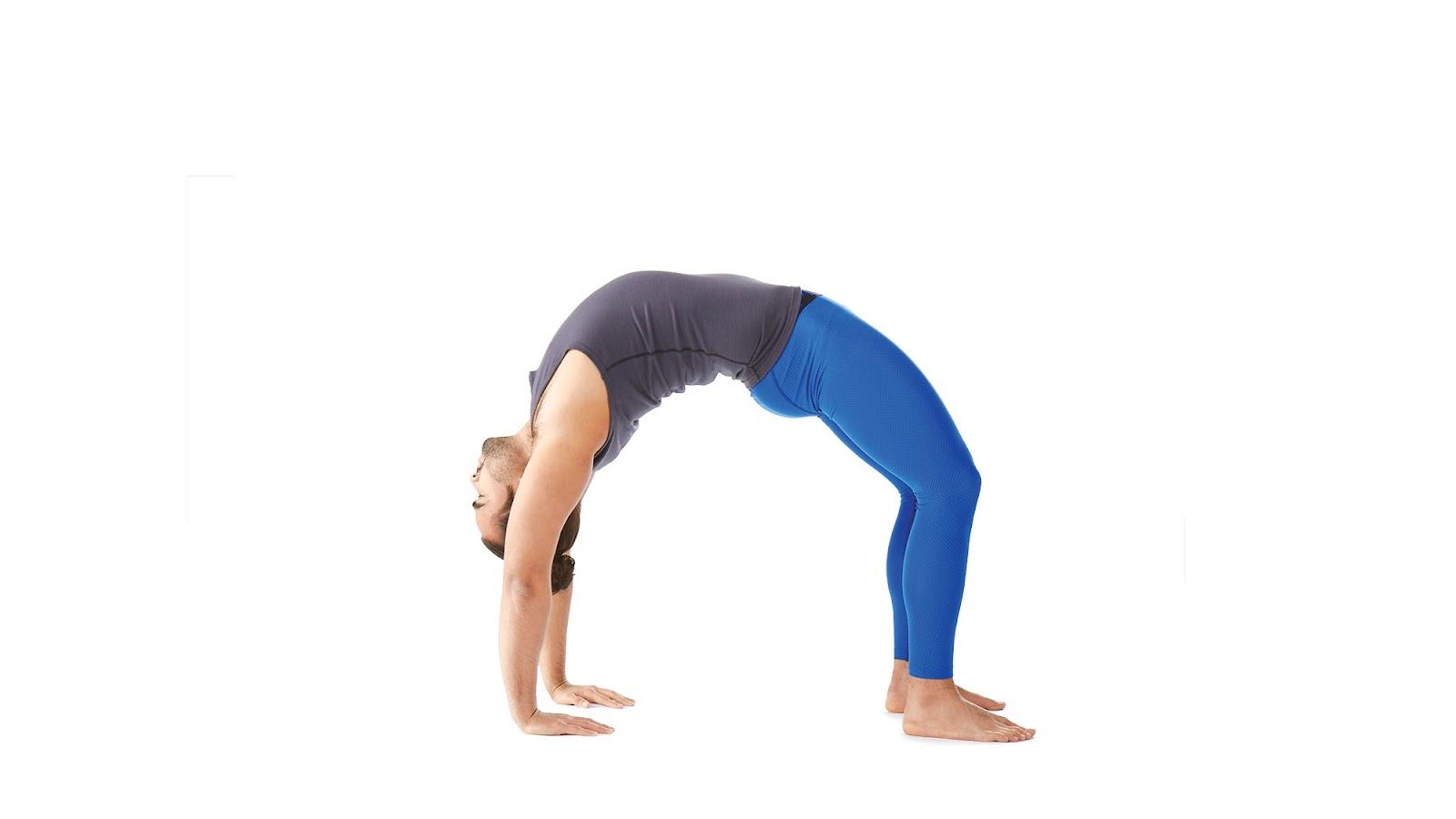
Rotation Poses (Hips)
Baddha Konasana / Cobbler's Pose helps to open the hips and give them a much-needed expansion. The seated position also provides a lengthening stretch for the back and shoulders while delivering peaceful stress-relief.
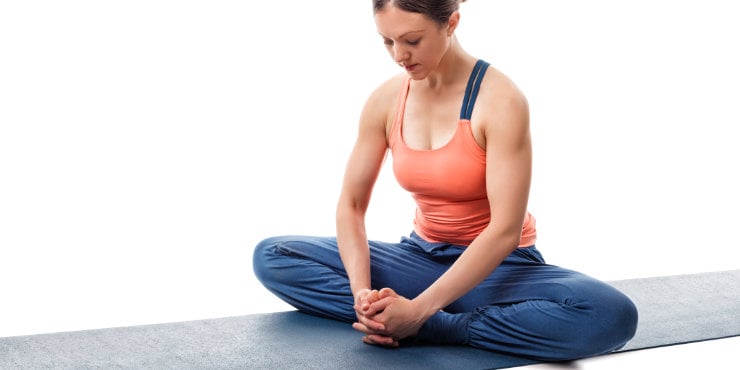
Janu Sirsasana / Knee-to-Head Forward Fold is a seated pose involving a slight spinal twist and an excellent stretch for the back, shoulders, hamstrings, calves, and ankles.
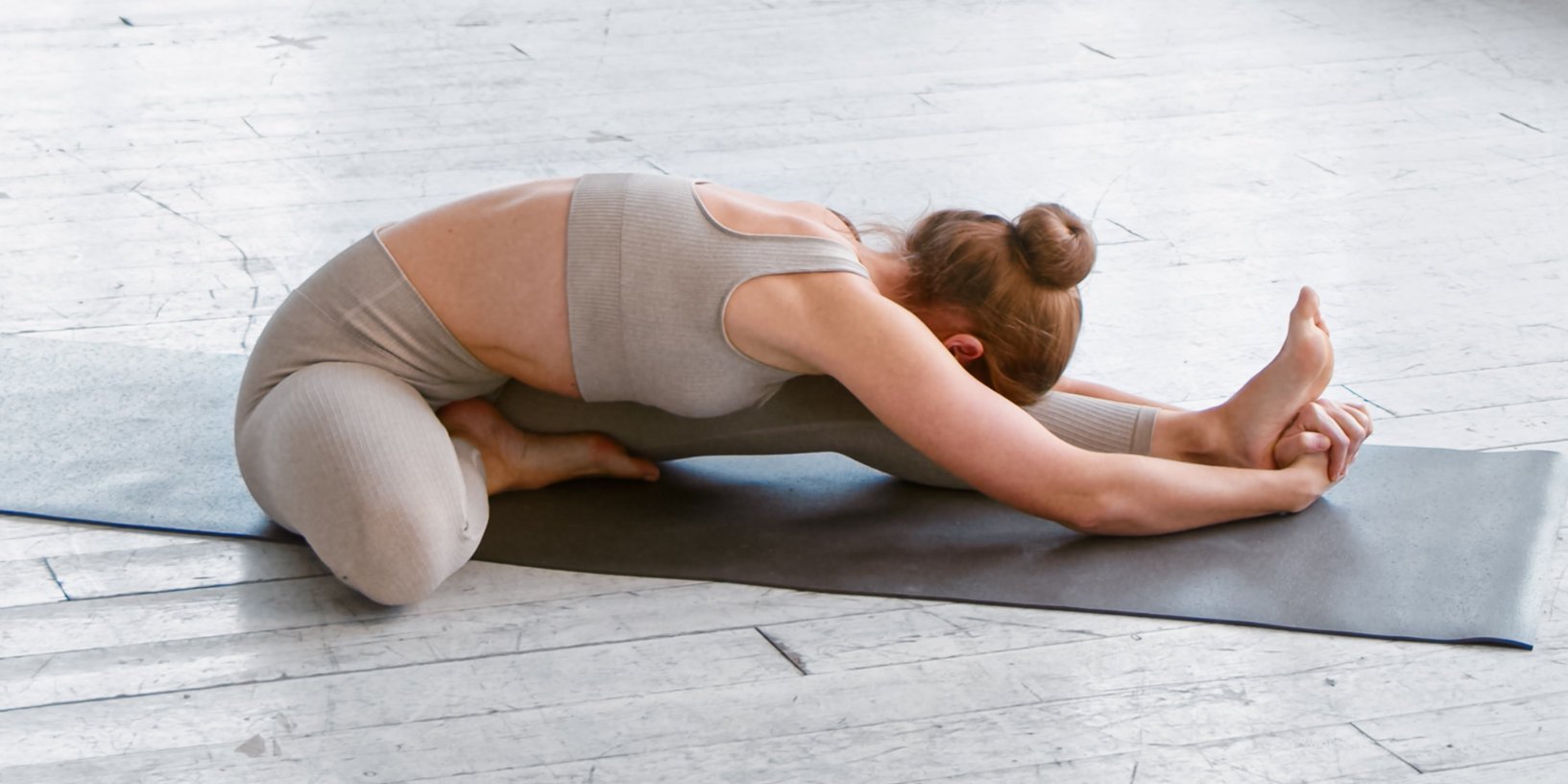
Gomukhasana / Cow (Face) Pose is a challenging position that requires the legs to be crossed while seated, with the arms bent at the elbow — one up near the ear and the other down and around the back. This pose offers a good stretch for the shoulders, thighs, and triceps.
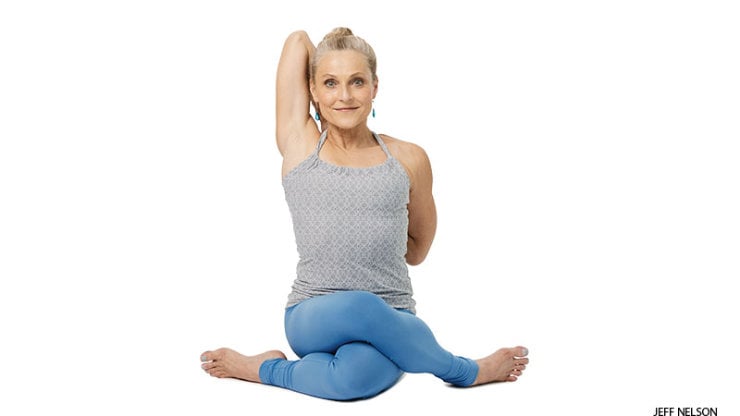
Virasana / Hero Pose is a seated pose that requires the knees to be bent beneath your seat, with feet splayed to either side. The position offers a deep stretch to the thighs and is a great alternative to Lotus Pose for meditation.
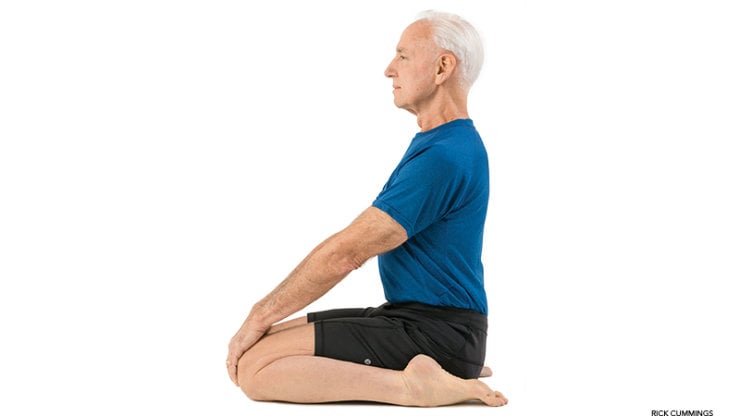
Rotation Poses (Spine)
Ardha Matsyendrasana / Half King Turn is a seated pose that involves shifting one leg over the other and twisting the upper body in the opposite direction. This pose strengthens the lower back and promotes flexibility in the spine.
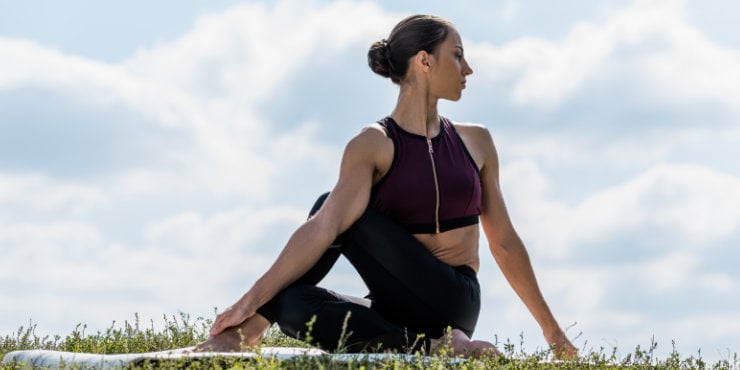
References
Is it Normal to Feel Sick After Yoga Class? | YogaClub.
Can You Really Use Yoga for Weight Loss? We Asked the Experts How to Do It Properly.
Yin Yoga & Restorative Yoga: What is the Difference? | Arhanta Yoga Blog
10 Reasons to Make Time for Yin Yoga When You're Too Busy.
12 Yin Yoga Poses to Awaken Dormant Energy & Recharge Your Practice
Disclaimer
The contents of this article are provided for informational purposes only and are not intended to substitute for professional medical advice, diagnosis, or treatment. It is always recommended to consult with a qualified healthcare provider before making any health-related changes or if you have any questions or concerns about your health. Anahana is not liable for any errors, omissions, or consequences that may occur from using the information provided.

By: Anahana
The Anahana team of researchers, writers, topic experts, and computer scientists come together worldwide to create educational and practical wellbeing articles, courses, and technology. Experienced professionals in mental and physical health, meditation, yoga, pilates, and many other fields collaborate to make complex topics easy to understand. Anahana is also home to specialists in crystals, tarot, angel numbers, astrology, life path numbers, zodiac signs, and horoscopes. By combining evidence-based wellness with spiritual and energetic practices, the team offers clear, trustworthy guidance for both mind-body health and modern spirituality.